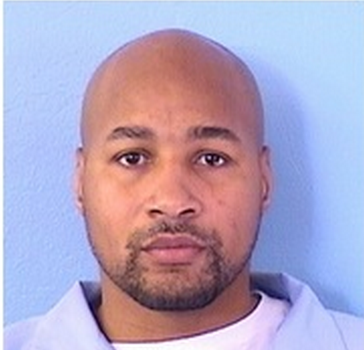 CHICAGO — The Illinois Supreme Court this week heard oral arguments in the case of Adolfo Davis, a prisoner sentenced to life without parole as a juvenile, who is now seeking re-sentencing.
CHICAGO — The Illinois Supreme Court this week heard oral arguments in the case of Adolfo Davis, a prisoner sentenced to life without parole as a juvenile, who is now seeking re-sentencing.
Davis had just turned 14 when he accompanied two other members of Chicago’s Gangsters Disciples to settle the score with a rival gang in a shooting that left two dead. Though Davis never fired his gun, he was charged as an accomplice and sentenced to Illinois’ mandatory minimum sentence — life without parole. That was 1990. After more than two decades in prison, Davis, now 37, is hoping for a second chance.
The basis for his case is a U.S. Supreme Court decision handed down in June 2012, which ruled mandatory sentences of life without parole for juveniles unconstitutional under the 8th amendment’s prohibition of cruel and unusual punishment. The 5-4 majority opinion in Miller v. Alabama, authored by Justice Elena Kagan prohibited state laws that, “mandated each juvenile (convicted of murder) die in prison even if the judge or jury would have thought that his youth and … the nature of his crime made a lesser sentence (for example, life with the possibility of parole) more appropriate.”
The opinion does not specify whether the Court’s mandate applies only to all future cases, or if it may be used retroactively to reconsider cases of the estimated 2,500 inmates currently serving life sentences they were given under mandatory minimum rules as juveniles. That is the issue currently before the Illinois Supreme Court as justices weigh Davis’ case.
Alan Spellberg of the State’s Attorney’s office argued against reconsidering Davis’ case under Miller. “The question before this court now is whether or not Miller v. Alabama is properly applied retroactively to a case that was deemed final 16 years before it was released,” Spellberg said. “The people submit that the answer to that must be no.”
Spellberg argued that reopening finalized cases based on new rulings by the Supreme Court is acceptable only in a very limited number of circumstances. Instead, he said, inmates seeking release under Miller should do so by petitioning Gov. Pat Quinn for clemency. Davis submitted a petition to the governor two years ago that has so far gone unanswered.
Davis’ attorney, Patricia Suong, said that his continued incarceration is unconstitutional, citing the Court’s decision to retroactively allow a re-sentencing of a defendant named Kuntrell Jackson in Jackson v. Hobbs, a companion case considered alongside Miller v. Alabama. In granting relief to Jackson, Suong said, “The United States Supreme Court acted with full appreciation of the repercussions that would flow for retroactivity.”
In the aftermath of Miller, inmates in 10 states have petitioned for re-sentencing with mixed results. There are currently about 100 people serving sentences of mandatory life without parole who were sentenced as juveniles. And according to juvenile advocates, the outcome of this case could decide if the state gets in line with the opinion of the U.S. Supreme Court or stays, in some measure, out of compliance with the 2012 ruling.
More to the point, they say, it could determine the fate of defendants like Davis.
Since his incarceration, Davis has renounced his gang involvement and encouraged youth to avoid gang life. Individuals close to Davis during his imprisonment, including his minister and his therapist, have advocated for his release.
This story produced by The Chicago Bureau

resentencing is I think delivered by a court, but executive clemency is an individual opinion, I commend that courts have to give judgements without the thoughts of executive clemency in mind because their deicisions are legal but of the executive is a political one. children need to be protected by law. keeping them in prison for life time is no protection atall. The case of Davis has to be accomplished by the supreme court since the whole authority of pitying juvenile offenders rests on the judges. This will be followed by other judges as judicial records are always used as references for future cases, but executive clemency is not an excellent opinion that can be followed but a mere imotional decision of an individual. Davis’ case will only be reconsidered through directives of the governor due to lack of another court above supreme court